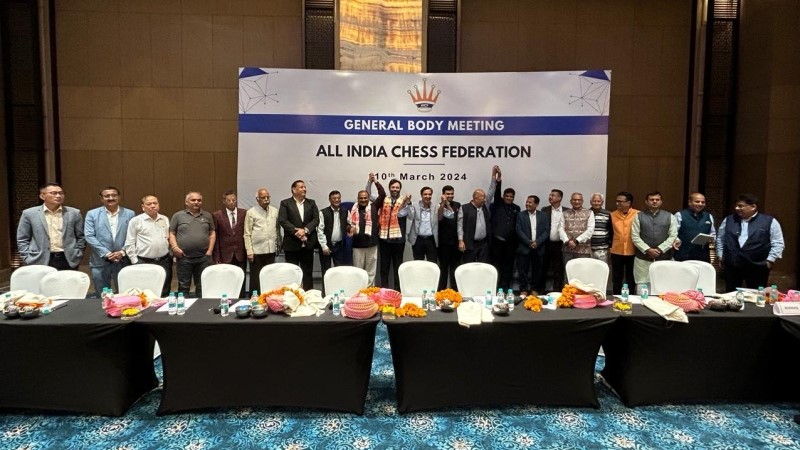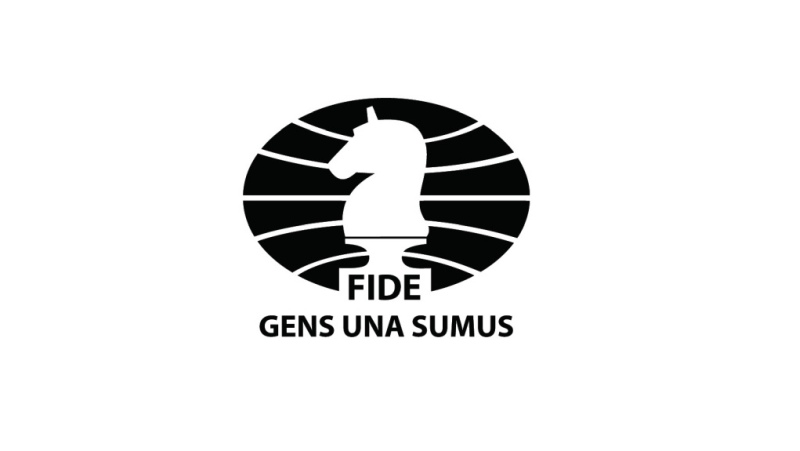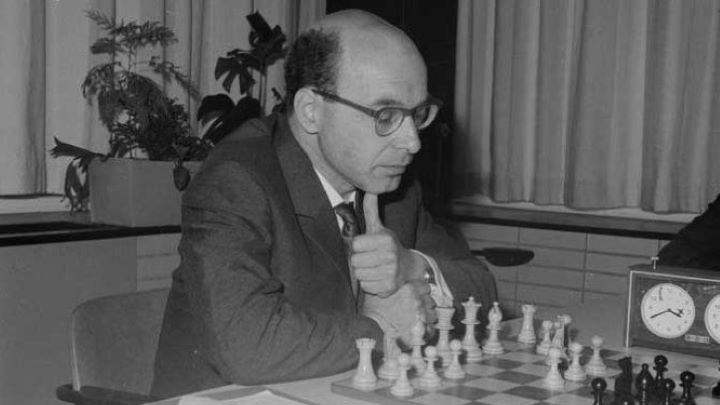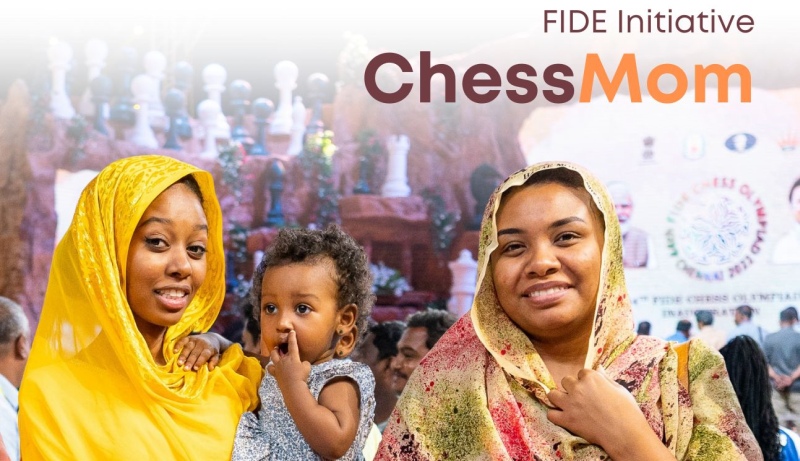American Cup 2024: Aronian and Krush win Champions brackets

Levon Aronian and Irina Krush emerged as the winners from the Champion brackets after defeating Ray Robson and Alice Lee in their respective matches. Aronian needed just a draw on the second day after winning both games on the first day, and he comfortably sealed the deal, earning a bonus prize of $15,000. Leading by one point going into the second day, Irina Krush won the classical game with the black pieces and immediately decided the match in her favor (2.5-0.5) and gained a bonus prize of $9,000. Meanwhile, Wesley So knocked out Fabiano Caruana after winning the blitz tiebreaker in the Elimination bracket. Gulrukhbegim Tokhirjonova eliminated Jennifer Yu after prevailing in both games on the second day of their match. It set up the Elimination brackets with Ray Robson playing a rematch with Wesley So and Gulrukhbegim Tokhirjonova taking on Alice Lee. The winners will face Levon Aronian and Irina Krush, respectively. Photo: Courtesy of Saint Louis Chess Club, Lennart Ootes Official website: uschesschamps.com/2024-american-cup/overview
15th “Preparation of Teachers” course: Last call for registration

Dear Chess Friends, Get ready for another extraordinary chess experience. Mark your calendars: March 22-24, 2024, for our 15th edition of the “Preparation of Teachers” course – your gateway to becoming a certified FIDE School Instructor. Bonus: Successful candidates get lifelong access to OPENING MASTER PREMIUM chess databases. Conducted in English, this 3-day online course is designed to engage you in a practical experience aimed at introducing the game of chess and integrating it with academic and 21st-century skills such as critical thinking, creativity, communication, and collaboration. Read the detailed course description here. Led by distinguished commission members Anzel Laubscher and Boris Bruhn, this course caters to teachers, chess educators, beginner and advanced players with basic chess knowledge, and anyone with experience working with children. Reserve your spot by registering here. Registration closes on March 18, with only 20 spots up for grabs. If you have any questions, please feel free to contact us at edu.courses@fide.com
American Cup 2024: Round 2 recap

The second round of the American Cup 2024 featured dramatic matches as four players advanced to the finals of the Champions Bracket. Ray Robson held onto his lead over Wesley So by drawing two games on the second day and advanced to the final. Robson will take on Levon Aronian, who prevailed over Fabiano Caruana in the blitz tiebreaker (2-0) after the opponents drew all four regular (two classical and two rapid) games. Fabiano and Wesley will have another chance in the Elimination Bracket, facing off against Lernier Dominguez and Sam Sevian, respectively. After winning two games over Nazi Paikidze on the first day, Irina Krush lost the first one on the second day but bounced back in the rapid game to clinch the match by the score of 3-1. It sets up a final in the women’s section between Irina Krush and Alice Lee, who whitewashed Gulrukhbegim Tokhirjonova (3-0). It will be their third straight meeting in the American Cup finals. In the women’s Elimination Bracket, Nazi Paikidze will face Jennifer Yu, while Gulrukhbegim Tokhirjonova is taking on Zoey Tang. Photo: Courtesy of Saint Louis Chess Club, Lennart Ootes Official website: uschesschamps.com/2024-american-cup/overview
American Cup 2024: Round 1 recap

The American Cup 2024, featuring an exciting and rare double elimination format, returned to Saint Louis Chess Club. The tournament brought world-class chess masters to America’s chess capital to compete in a fierce do-or-die struggle for $400,000 in prize money. Fans can expect the American Cup to have a combination of exciting chess play, stunning upsets, and epic comebacks. In this unique double-elimination format, the losers of each match will get relegated to the Elimination Bracket, where they will get a second chance to continue the tournament. Round 1 saw many tense battles, with one major upset in the open section. Fabiano Caruana cruised through his match with Grigoriy Oparin after winning both classical and rapid games on the first day and drawing the classical one on the second day. Oparin is not out but relegated to the elimination bracket, where he will have another chance. Wesley So is also through after winning the classical game on the second day in his match with Sam Shankland. The first upset of the event went to Ray Robson who managed to defeat Lernier Dominguez in their match, winning the second classical game and drawing the second rapid encounter. The match between Levon Aronian and Sam Sevian went the distance to the blitz playoff, won by Levon by the score of 2-0. In the women’s section, Nazi Paikidze, Gulrukhbegim Tokhirjonova and Alison Lee took the lead in their matches on the first day and needed just a draw in the second classical game to advance to the next round. All three completed this task, relegating Anna Zanonskih, Tatev Abrahamyan and Jennifer Yu to the elimination bracket. After losing the first classical game to Zoey Tang, Irina Krush staged a comeback, winning three straight games and moving to the next round. Day 3 of the American Cup continues on Wednesday, March 14th at 1:20 PM CDT with live commentary from Grandmasters Yasser Seirawan, Cristian Chirila and Woman Grandmaster Anastasia Karlovich. Photo: Courtesy of Saint Louis Chess Club, Lennart Ootes Official website: uschesschamps.com/2024-american-cup/overview
AICF elections: Shri Nitin Narang and Shri Dev A Patel take charge

New Delhi (12 Mar 2024): Following the National Sports Code, the AICF General Body unanimously elected the new set of office bearers for the term 2024-27 headed by Shri Nitin Narang of Haryana as President and Shri Dev A Patel of Gujarat as Secretary. International Arbiter Shri Dharmendra Kumar of Bihar is the new Treasurer for the Federation. The returning officers, Hon’ble Justice Rang Nath Pandey and Hon’ble Justice G S Sistani, declared the results in the General Body meeting held at the Leela Ambience Convention Hotel here on Sunday, and all the office bearers were elected unopposed. The General Body also elected six vice presidents: Shri Anil Kumar Raizada of Uttar Pradesh, Grandmaster Dibyendu Barua of West Bengal, Shri Raghvendra Singhania of Chhattisgarh, Shri D P Anantha of Karnataka, Shri Mahaveer Ranka of Rajasthan, Shri Repo Ronya of Arunachal Pradesh and six joint secretaries, namely Shri Kandarpa Kalita of Assam, Shri Prasanta Kundu of Tripura, Shri Soibam Mangijao Singh of Manipur, Shri H Lalthlamuana of Mizoram, Shri Sanjeev Thakur of Himachal Pradesh and Shri Manish Kumar of Jharkhand. All India Chess Federation official website: aicf.in/
Majority of elite female chess players believe a woman will be World Champion

March 7, 2024, LONDON, United Kingdom — A recent survey conducted by World Chess among participants of the Swiss Queens Wednesdays, an elite online chess tournament series, has revealed a significant shift in perceptions among female chess players regarding gender barriers in the sport. A remarkable 65% of respondents expressed confidence that a woman will become the world chess champion, with 32% believing it could happen in less than 5 years and 33% foreseeing it within the next decade. This optimistic outlook from the majority of respondents underscores a growing belief in the chess community that gender will not be a barrier to reaching the pinnacle of global chess competition. The Swiss Queens Wednesdays series, organized by World Chess in collaboration with FIDE, plays a critical role in this progress by providing a platform for female players to compete at the highest levels, gain visibility, and inspire aspiring chess champions. The tournament series is instrumental in challenging the historically male-dominated nature of chess and fostering a more equitable environment. Historical precedents, such as Judit Polgar’s ascension into the top ten global rankings, have already shown that female players can compete at the highest levels. The renewed interest in chess, fueled by portrayals of female chess prodigies in popular culture, such as Netflix’s “The Queen’s Gambit,” further amplifies the conversation around the potential for a female world chess champion. The findings from the Swiss Queens participants survey are a testament to the changing attitudes and growing confidence among female chess players. World Chess and FIDE are committed to continuing their support for initiatives like the Swiss Queens Wednesday, which are vital for achieving gender parity in chess and realizing the ambition of crowning a female world chess champion. Ilya Merenzon, CEO of World Chess: “I agree with the 65%. I think we will see the female world champion very soon. And I can’t wait to celebrate it!” Dana Reizniece-Ozola, Deputy Chair of the FIDE Management Board: “We are not surprised by the findings of the survey indicating a growing confidence among elite female chess players in general. This shift in perception underscores the ongoing efforts, including those of FIDE, to promote inclusivity and diversity within the chess community. We hope that with projects like 100 Years of FIDE and the Swiss Queens Wednesday Series, this inclusivity will continue to rise.” Swiss Queens Wednesday Series: chessarena.com/swiss-queens-wednesday World Chess Plc (LSE: CHSS) is a London-based chess gaming and entertainment company and Fédération Internationale des Échecs (‘FIDE’) official commercial partner. World Chess organized the FIDE Championship Matches in the USA, and the UK, and revolutionized the sport by signing the biggest media partnerships in history. World Chess develops Armageddon, the chess league for prime-time television. World Chess also runs FIDE Online Arena, the exclusive official chess gaming platform. More at worldchess.com.
FIDE World Cadet U8, U10, U12 Championships 2024: Call for Bids

FIDE Events Commission would like to announce the procedure “Call for Bids FIDE World Cadet U8, U10, U12 Championships 2024” and invite all FIDE member Federations to participate. The bid deadline is March 7, 2024, 15:00 CET. Dear bidders, more details about the procedure including the Bid Form and Bid Form Annex, Bid and Deposit Fees you can find HERE.
In memory of David Bronstein on the 100th anniversary of his birth

Today is 100 years since the birth of David Bronstein. David Bronstein was an outstanding grandmaster, and yet – a unique case for a man who almost became world champion – his immediate contribution to popularizing chess is no less important. Bronstein authored several great books. Along with Zurich-1953 (written for the most part by his senior friend and mentor Boris Vainstein), I would mention the remarkable “200 Open Games”. And how many wonderful and memorable articles he wrote how many insightful predictions! Judge for yourself: In his essays “On the Way to the Electronic Grandmaster” and “Chess of the Third Millennium”, Bronstein predicted much of modern computer and online chess, albeit in the terminology of 1978 (the book “A Beautiful and Furious World”, co-authored with Smolyan). “…A chess player would use a machine to extensively analyze the variants chosen based on his knowledge and intuition to test strategic ideas and control errors. It would have added at least 500 points on the professor A. Elo’s rating scale.” Photo: Eric Koch pour Anefo — Dutch National Archives, The Hague “Today, we don’t know any chess player, including the world champion, who, having made the first move, can recite all possible variations as he sees them on a tape recorder. But if the best chess players in the world were contesting with a microphone, everyone would hear how beautifully they think. However, FIDE is clueless that by organizing tournaments of talking grandmasters, the federations would gather an appreciative audience of millions. (In this case, you can’t hide your own helplessness behind other people’s moves.) Masters could use television technology to speak to the public in the language of chess symbols in such tournaments. Such a game, among other things, would remove certain inferiority from those playing since the public considers an unexpected move for themselves as a surprise for the grandmaster as well. And with closer contact, the audience would fantasize less and penetrate deeper into highly skilled and creative thinking.” “It is likely that some publisher will release a game of ‘Chess Tests’ in time. Different positions will pop out of a box for a certain amount of time, while a counter will indicate a score depending on the quickness of the solution choice.” Photo credit: D. Prants, via https://muis.ee “The Chess House Central Machine Service will appear, and you can join the computer by telephone and play with it if you like – the whole family. After the game, the computer will send you, along with your energy bill, a copy of the game.” Bronstein was a pioneer in many ways, and it is a pity that he did not become world champion. I think many of his original ideas would have received a much broader appeal. A pupil of Alexander Konstantinopolsky (by a funny coincidence, also born on February 19), he stood out both in his playing style and opening repertoire. Bronstein, along with Boleslavsky, is credited with introducing the King’s Indian Defense to the top competitive level. Thanks to them, the opening was for some time called the “Ukrainian Defence”, as two friends – Bronstein from Kyiv and Boleslavsky from Dnepropetrovsk – who had worked together since their youth, actually brought this opening into the highest tournament level. “Devik”, as he was called, played with great panache sacrificing pawns and pieces. The trajectory of his rise was very steep. Who knows how his fate and chess history would have turned out had he preserved the lead in the title match with Botvinnik in 1951? It was 11.5:10.5 on the scoreboard with just two games to play, and all he needed was not to lose. If Bronstein had held on then, many things would have been different. Having become vice-champion at 27, Bronstein could not overcome the shock of missing this chance. For another fifteen years after the match, he played at a high level and, most importantly, was bursting with ideas. Rapid chess is also Bronstein’s brainchild and even time increment called Fischer’s was originally spotted by Bronstein in Shogi, and only then, slightly modified, was adapted in chess. There were many other things: his books, where truth is mixed with fantasy but permeated with love for chess, different engaging formats, etc. Gradually, he got older; his marvelous ideas interspersed with eccentric ones, and more and more often, David reminisced about to the 1951 title match he had failed to win. This indelible bitterness was present in many of his late speeches and articles. It was felt in talks with him as well. I had a chance to talk to the legendary veteran quite a bit and even received a compliment from him during a game with van Wely (1997). After I made a subtle move, Bronstein, who hung around the table for a long time, waited for me to stand up, took me under the elbow and said in a loud whisper: “You’re playing 21st-century chess!” Photo: Anne Fürstenberg He was an eccentric, one-of-a-kind person who talked a lot, sometimes even losing his interlocutor’s attention. Bronstein gushed out most of his interesting ideas in his younger years. David lived a long life, but he was the kind of person who gave out almost the entire stock in the first half of the journey. Still, this alone more than suffices for a place in any chess pantheon. He loved chess passionately into his old age. David loved talking about it. He loved experimenting. He continued to play in tournaments even in his 70s. Bronstein always had a lot of fans, and the organizers opened doors for him. Was he a wise man as the artist portrayed him? Probably not. He was a man capable of thinking up countless original ideas. Sometimes paradoxical. Sometimes deliberately provocative. But they were brilliant and had far-reaching consequences. He was always in the limelight, no matter what he did, whether it was his brilliant play and top-level skills of a practical player, an array of ideas in the King’s Indian, Dutch,
FIDE launches the ChessMom initiative

FIDE Commission for Women’s Chess is pleased to announce a new initiative focused on supporting Professional Chess Players going through motherhood The ChessMom pilot project aims to provide support for professional chess players who are mothers of infants under one year old. Specifically, through this initiative, all expenses related to an accompanying or caregiver person for ten female players traveling with their infants to the 45th Chess Olympiad will be covered. Dana Reizniece-Ozola, FIDE’s Deputy Chair of the Management Board, expressed her support, drawing on her personal experience as a chess player and mother of four. “As a chess player and as a mother of four children and as someone who actively played chess, I understand how hard it is for mothers who are professional players to cope with both maintaining their career and living and fulfilling the critical role a mother has in the first year of their child. FIDE, therefore, fully supports this initiative by the Commission for Women’s Chess, and we will actively look towards other ways on how we can help and support chess mothers in the future,” said Dana Reizniece-Ozola. The Chess Olympiad organizer will recognize both the child and the accompanying caregiver as integral parts of the National Official Delegation, granting them all applicable rights. This includes discounted full board rates where applicable, with FIDE covering lodgings, meals, and any other applicable discounted fees as part of the Official Delegation. National Delegations should, therefore, consider a child and the accompanying caregiver as part of the National Official Delegation, with all applicable rights. “In recent years, we have seen many initiatives by FIDE in favor of Women. Now we address the most important one in their adult lives, motherhood. Our players should not have to choose between family and chess. I hope this pilot program transitions to become the norm in the near future,” said Francisco J Cruz Arce, WOM Member and ChessMom Project Leader. WOM urges National and Continental Federations to review and adjust their requirements for National Teams to include provisions for chess players who are mothers. The hope is that this initiative will evolve into consistent support for professional chess players experiencing motherhood during significant tournaments. “The idea of the project is to keep professional chess players in chess in the early stages following the birth of a child. Many chess players can’t come to the Olympiad and other chess events because there is no possibility for them to take care of a baby. This project can become a great social initiative,” said Anastasia Sorokina, WOM Chair. For more information, please contact the project Leader Francisco J Cruz Arce: fj_007@yahoo.com
FIDE Endorses ChessNoteR N6 & N9 devices

FIDE Technical Commission is delighted to announce that the FIDE Council has officially endorsed the ChessNoteR N6 and N9 devices (MB-2024-02). Developed by Black Mirror Studio, the ChessNoteR (chessnoter.com) is a groundbreaking approach to digitizing chess notations for offline gameplay. Deployed on two specially customized Android devices, the NEXUS 6 and NEXUS 9, this solution ensures heightened security and efficiency. The exclusive focus on the ChessNoteR software and essential device settings significantly enhances fair play measures in tournament conditions. Key features of these devices include streamlined tournament and opponent management, versatile board setting options, and the capability to easily transfer games to computers. Such innovations promise to benefit players in competitive settings substantially. We extend our heartfelt gratitude to IA Arasu B, IA Dinu-Ioan Nicula, and IA Hendrik du Toit of the FIDE Technical Commission for their diligent evaluation of these devices. For any inquiries or additional information, please contact Hendrik du Toit at secretary.tec@fide.com.

